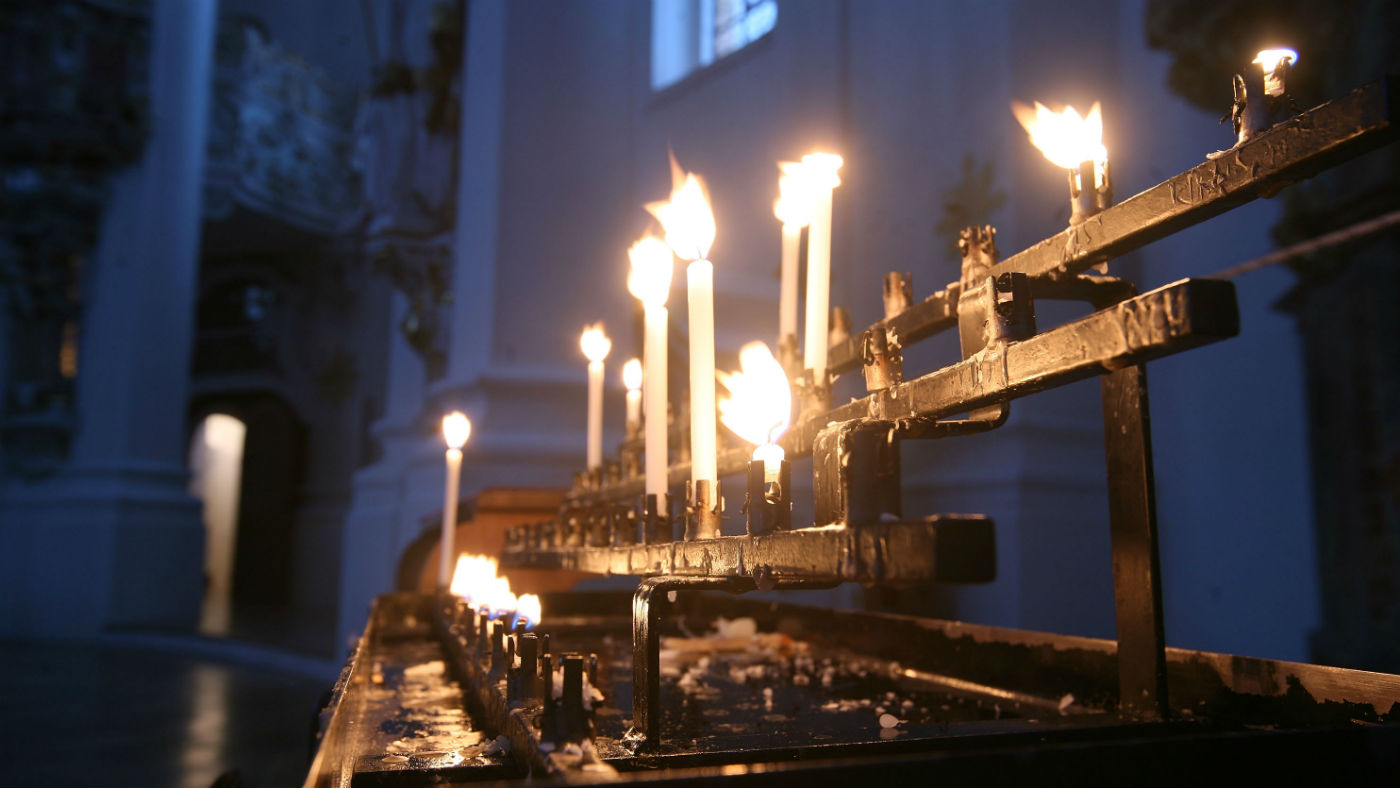What is Advent and what are the dates for 2018?
How Christians around the world mark the run-up to the nativity

A free daily email with the biggest news stories of the day – and the best features from TheWeek.com
You are now subscribed
Your newsletter sign-up was successful
Christmas may not be here just yet, but we are already well into the Advent season.
To the millions of children launching out of beds with a spring in their step every morning to open their advent calendars, the season probably means little more than chocolate.
But from a liturgical standpoint, the significance of Advent is wide-reaching, and it remains one of the most important observances of the Christian calendar.
The Week
Escape your echo chamber. Get the facts behind the news, plus analysis from multiple perspectives.

Sign up for The Week's Free Newsletters
From our morning news briefing to a weekly Good News Newsletter, get the best of The Week delivered directly to your inbox.
From our morning news briefing to a weekly Good News Newsletter, get the best of The Week delivered directly to your inbox.
Advent, according to Christian information website Got Questions, “is observed with various traditions and rituals by Catholics and other liturgical groups such as Lutherans, Anglicans, and Methodists”, and “in recent years, Advent celebrations of one type or another have been added to many evangelical services as well”.
The season of Advent lasts for four Sundays during the build-up to Christmas, so this means it usually begins on the Sunday that falls between 27 November and 3 December. In 2018, Advent began on Sunday 2 December.
So what is Advent, and how is it celebrated in Christian communities?
What is Advent?
A free daily email with the biggest news stories of the day – and the best features from TheWeek.com
The Advent period is a time of preparation and anticipation for the birth of Jesus Christ. Its name derives from the Latin “adventus”, meaning coming.
Although it falls at the end of the year, Advent is the first season in the Western Christian liturgical calendar. Its precise origins unknown, but the season was being observed by European Christians by the 5th century.
In its earliest form, Advent was not seen as a run-up to Christmas Day but to the Feast of the Epiphany, which falls on 6 January and marks the visit of the Three Kings to the baby Jesus, writes Father William Saunders for the Catholic Education Resource Center.
Epiphany was historically a time when converts were baptised “so the Advent preparation was very similar to Lent with an emphasis on prayer and fasting”.
“It was not until the Middle Ages that the Advent season was explicitly linked to Christ’s first coming at Christmas,” says US theology lecturer and Episcopal priest Justin Holcomb.
When does Advent start and end?
The Advent season begins on the fourth Sunday before Christmas. Depending on the year, this can fall anywhere between 27 November and 3 December. The final week of the season begins on the Sunday before Christmas Day.
This year is a late Advent - the season begins on 3 December, meaning the last Sunday falls on 24 December.
How is it observed?
Modern Advent traditions are less austere than the fasting and penance of early Christians.
The most familiar feature of the Advent season are Advent candles - unsurprising given that December is the darkest time of year in the northern hemisphere. There are four candles in total, with each one lit on successive Sundays.
Advent wreaths bedecked in candles first appeared in UK churches in the 19th century as an import from northern Europe, says the Church of England, and they are now a common adornment.
The colour purple is associated with the Advent season, along with blue in some denominations, so clergy will typically don purple vestments for services, while the altar and lectern are draped with purple cloth.
Nativity scenes depicting the newborn Jesus surrounded by Mary and Joseph, the shepherds and Three Kings and various barnyard animals are also a common sight at this time of year.
Some cultures put their own unique spin on the practice - none more so than Catalonia, where nativity scenes often feature a character known as El Caganer (The Crapper), a peasant in the act of emptying his bowels.
At some point in the Advent season, it is now common for churches and Christian schools to hold a Christingle service.
Christingles are made by tying a red ribbon around an orange and then inserting a candle into the fruit - the orange represents the world, the candle stands for Jesus and the ribbon represents the blood of his sacrifice for the world.
The candle is usually surrounded by four cocktail sticks holding sweets or raisins, representing the four seasons and the produce of the earth.
Christingles have been a feature of the German Moravian church since the 18th century, and were popularised in the UK by The Children’s Society charity in the 1970s.
Prayers and readings during church services at this time of year encourage both a re-appreciation of Christ’s first coming at the Nativity and meditation on his anticipated second coming.
In fact, many popular Christmas carols reflect this connection. Hark, the Herald Angels Sing explains that Jesus was “born to raise the sons of earth / Born to give them second birth”, while O Come, O Come Emmanuel longs for the saviour’s return on Judgment Day.